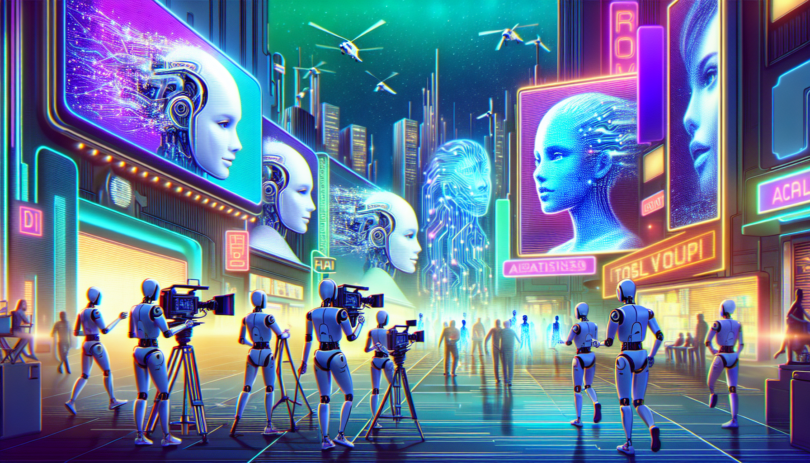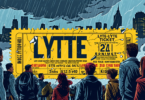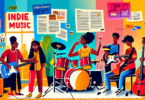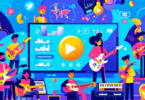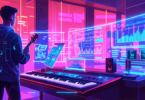Artificial Intelligence (AI) has rapidly evolved from the realm of science fiction to an indispensable tool in numerous industries. Particularly in film and advertising, AI technologies are reshaping traditional paradigms, enhancing creativity, efficiency, and engagement. This article delves into the disruptive impact of AI in these fields, highlighting the transformative innovations that are setting new benchmarks.
AI in Film Production
AI is revolutionizing the film production process from pre-production to post-production. Here are some ways AI technologies are making a significant impact:
Scriptwriting and Storytelling
AI-driven algorithms can analyze vast amounts of data from successful movies, offering insights into what makes a compelling story. Tools like ScriptBook and AI-based services can predict a script’s success and suggest modifications. This data-driven approach helps filmmakers craft stories that are more likely to resonate with audiences.
Casting and Character Development
AI tools can assist in casting decisions by analyzing actors’ past performances and predicting their suitability for specific roles. This minimizes the subjective biases that often influence casting decisions. Additionally, AI-generated characters and voice synthesis technologies, such as those by companies like Respeecher, bring digital characters to life with unprecedented realism.
Visual Effects and Animation
AI-driven visual effects tools automate complex tasks such as rendering and rotoscoping, significantly reducing the time and cost associated with these processes. Machine learning algorithms can also generate realistic animations and enhance CGI, as seen in movies like The Lion King (2019), where AI was used to create lifelike animal movements.
Post-Production and Editing
Editing is another area where AI is making waves. Tools like Adobe’s Sensei and Blackmagic’s DaVinci Resolve utilize machine learning to streamline the editing process, offering features like automated scene detection, color correction, and even creative suggestions. This allows editors to focus more on the artistic aspects rather than the repetitive tasks.
AI in Advertising
In advertising, AI is equally transformative, offering tools that enhance targeting, creativity, and strategic decision-making. Below are some notable AI applications in the advertising world:
Personalized Advertising
AI enables hyper-personalized advertising by analyzing user data to deliver tailored content. Algorithms can predict consumer behavior, preferences, and trends, allowing advertisers to create highly targeted ads that are more likely to convert. Platforms like Google and Facebook use AI to enhance their ad targeting capabilities, ensuring that ads reach the most relevant audiences.
Ad Creation and Design
AI-powered tools, such as those offered by companies like Canva and Adext, streamline the ad creation process by generating design templates, suggesting color palettes, and even creating entire ad campaigns. These tools democratize the creative process, allowing even those with minimal design skills to produce professional-quality ads.
Automated Content Generation
Natural Language Processing (NLP) technologies are used to automate content creation, from ad copy to blog posts. GPT-3, developed by OpenAI, can generate human-like text that is virtually indistinguishable from content written by humans. This allows marketers to produce a large volume of content quickly, maintaining consistency in messaging across various channels.
Performance Analysis and Optimization
AI excels in data analytics, providing real-time insights into ad performance. Machine learning algorithms can analyze metrics like engagement rates, click-through rates, and conversion rates, offering actionable recommendations for optimization. Tools like Google Analytics and HubSpot leverage AI to help marketers continually refine their strategies for maximum impact.
The Future of AI in Film and Advertising
The integration of AI into film and advertising is still in its early stages, but the potential is immense. As AI technologies continue to evolve, we can expect even more innovative applications that will further blur the lines between creativity and technology. From AI-generated movies to fully automated ad campaigns, the future promises a landscape where artificial intelligence is not just an assistant but a co-creator.
Transformation
Disruptive AI technologies are undeniably transforming the realms of film and advertising, driving a paradigm shift that enhances creativity, efficiency, and user engagement. As these technologies continue to mature, they hold the promise of unlocking new dimensions of storytelling and marketing, ultimately reshaping the way content is created and consumed.


